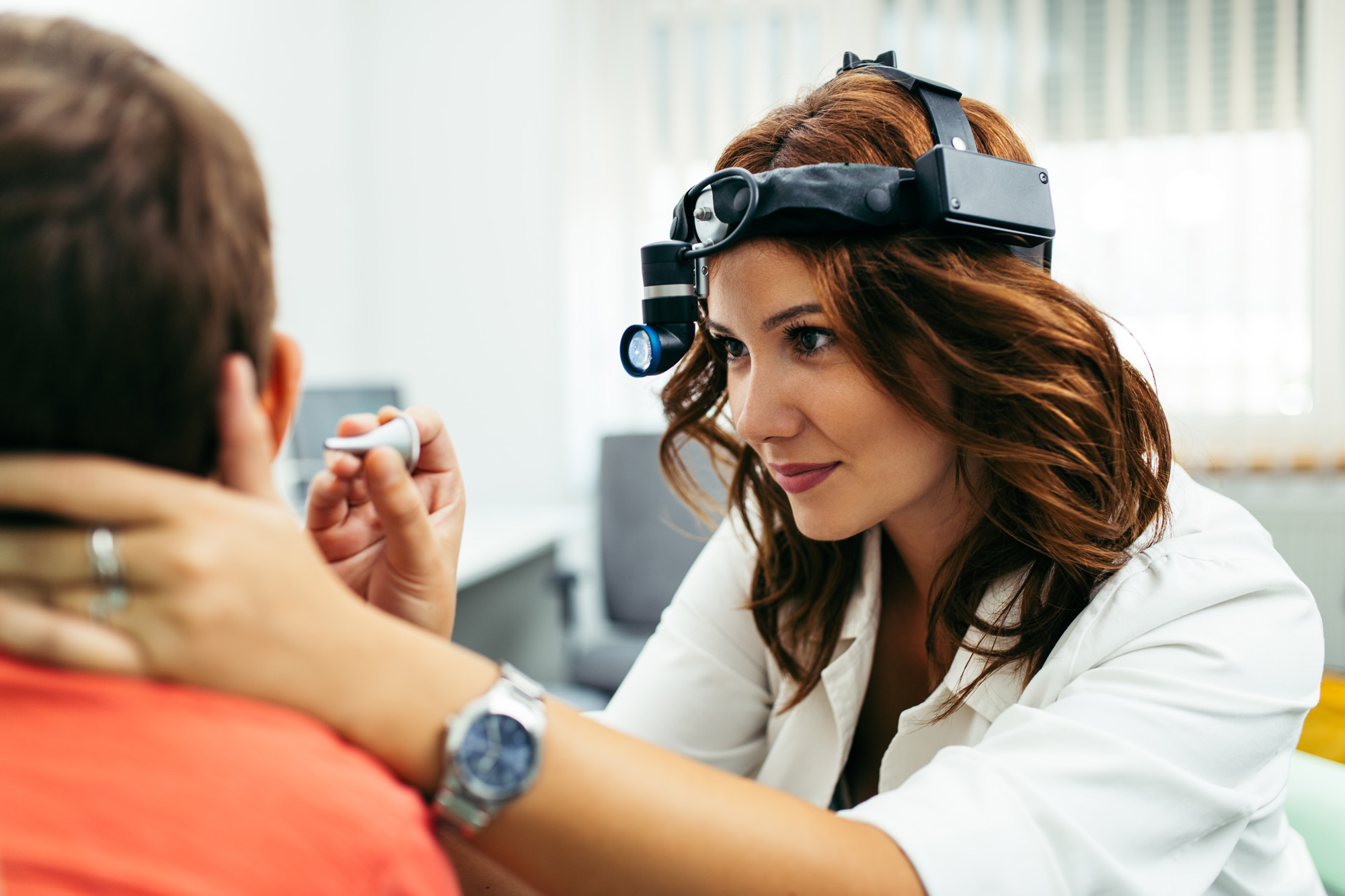
Hearing Aids
Now more than ever, hearing aids are easy-to-use, comfortable, and subtle. At Family Hearing Practice, we work with each patient to find hearing aids which fit their unique lifestyle and needs. Our practice is locally owned and operated by Dr. Allison Liberio, an experienced and premier audiologist. Together with her skilled team, Dr. Liberio will work with you or your loved ones to explore the hearing products available. It is her goal to give you an improved quality of life while preserving your remaining hearing.
Our practice is based in Flower Mound, TX, and welcomes patients from across the Greater Dallas/Fort Worth area. We have the skills and experience to treat patients of all ages.
How do I know I need hearing aids?
Does your hearing interfere with normal, everyday activities? Do you experience stress and anxiety when in large groups or at family gatherings? It is common for people who develop hearing loss to experience these symptoms. In addition to evaluating the effect your hearing loss has had on your life, it is important to consider what type of hearing loss you have experienced (conductive or sensorineural) and the degree of hearing loss.
What is it like wearing hearing aids?
There is a common misconception that hearing aids amplify the sounds around you, which is no longer true. With today’s hearing aids, you can expect to understand speech better in both noisy and quiet situations. Hearing aids do not restore your hearing to normal, but instead, increase speech to a more comfortable level.
It is best to wear hearing aids in both ears if you have experienced hearing loss in both ears. This allows for better understanding in noisy rooms, better localization, and an overall fuller sound.
Helping You Find the Hearing Aids to Fit Your Needs
Determining the best hearing aid for you depends on your individual hearing loss and listening needs, the shape and size of your ear and ear canal, as well as the dexterity of your hands. Our staff will partner with you to determine the best type and fit of aids for you.
The styles of hearing aids include:
Behind the Ear (BTE) Aids
These aids go over the ear and connect with tubing to custom-fitted earpieces. These aids are great for children, patients with moderate to profound hearing loss, or patients who have limited dexterity.
Receiver in the Canal (RIC) Aids
These aids have a newer design. Like the BTE aids, these are placed over the ear. However, they are extremely small and nearly invisible. These aids are particularly suited for those who have a high-frequency hearing loss.
In the Ear (ITE) Hearing Aids
These aids fill the entire bowl of the ear and part of the ear canal. They are well suited for those with moderate to severe hearing loss or those with limited dexterity.
In the Canal (ITC) Aids
Also known as half-shell aids, these are a smaller version of ITE aids. These aids fit mostly within the ear canal and are well-suited for patients with a mild to severe hearing loss and those who prefer an in-the-ear style.
Completely in the Canal (CIC) aids
These aids are the least visible option, as they fit deep within the ear canal. Patients with mild to moderate hearing loss may find these most suitable.
Pairing Your Hearing Aids With The Outside World
Many modern hearing aids have telecoil “T” switches for telephone use and public sound systems. Other options, such as FM systems and Bluetooth devices paired with hearing aids, may provide the best benefit for some patients.
Do you have difficulty hearing on the phone or understanding conversations?
Perhaps you prefer not to participate in the activities you once enjoyed because of your hearing loss? If hearing aids are no longer helping you, or you have stopped wearing them altogether, a hearing implant may be able to help. It is a proven solution for hearing loss in adults. Whether you lost your hearing suddenly or gradually over time, a hearing implant can help you reconnect to the people and activities you love.
Are you missing conversations at dinner with your family? What about at a meeting with co-workers in a noisy office? These are important moments in life. We understand that it can be frustrating when you struggle to hear and communicate, even with hearing aids. You want to be able to enjoy life without planning around your hearing loss. Hearing implants may be the solution you are looking for to hear more clearly, regain your independence and connect with people you love. Hearing implants are different from hearing aids. Hearing aids help many people by making the sounds they hear louder. Unfortunately, as hearing loss progresses, sounds need to not only be made louder, they need to be made clearer. Hearing implants can help give you that clarity, even in noisy environments.
Signs that hearing aids may not be providing enough benefit
With hearing aids, do you:
- Have difficulty hearing conversations, especially with background noise?
- Often ask people to repeat themselves?
- Often misunderstand what people say?
- Have trouble hearing on the telephone?
- Turn up the volume on the TV louder than others in the room prefer?
- Feel people often mumble when they talk?
- Struggle to hear sounds of nature such as birds chirping or rain falling?
- Find yourself agreeing, smiling or nodding during conversations when you’re not sure what’s been said?
- Regularly withdraw from conversations because it’s too difficult to hear?
- Read lips to understand what people are saying?
If you answered “yes” to any of these questions, an implantable hearing solution, like a cochlear implant or bone conduction implant, may be the answer
Cochlear Implant services in Flower Mound
When a crucial part of your inner ear is not working properly, you may need more than a hearing aid—you may need a cochlear implant to treat your moderate to profound sensorineural hearing loss. The Cochlear Nucleus System mimics the natural hearing function of the inner ear to help make sounds louder and clearer. A cochlear implant then bypasses the damaged part of the ear, which may help you to understand sounds in both noisy and quiet environments. This enables you to hear everything from conversations in noisy restaurants to leaves rustling in the wind.
Family Hearing Practice is committed to the continued success of our patients. When hearing aids are no longer enough, it can be overwhelming to consider other options. We are here for you. When hearing aids are no longer providing you with the benefit you need, we can help you navigate the decision of implantable devices such as cochlear implants. With thorough testing, counselling, and resourcing, we are able to make sure you make the right choice in moving forward with better hearing. If you decide to pursue implants, we will be here for all your preop and post operative needs. Programming and device training are all done here in the office.
To schedule a consultation or to learn more about available hearing aids and our services, please contact Family Hearing Practice today at 817-997-4084. We look forward to meeting you!
Family Hearing Practice
Flower Mound, TX 75028
Family Hearing Practice
100 Country View Dr Suite 200
Roanoke, TX 76262
Contact
Flower Mound Location Hours
9:00 AM – 5:00 PM
Saturday
9:00 AM – 12:00 PM
*Open the first Saturday of each month by appointment only
Roanoke Location
MONDAY - FRIDAY
9:00 AM – 5:00 PM


